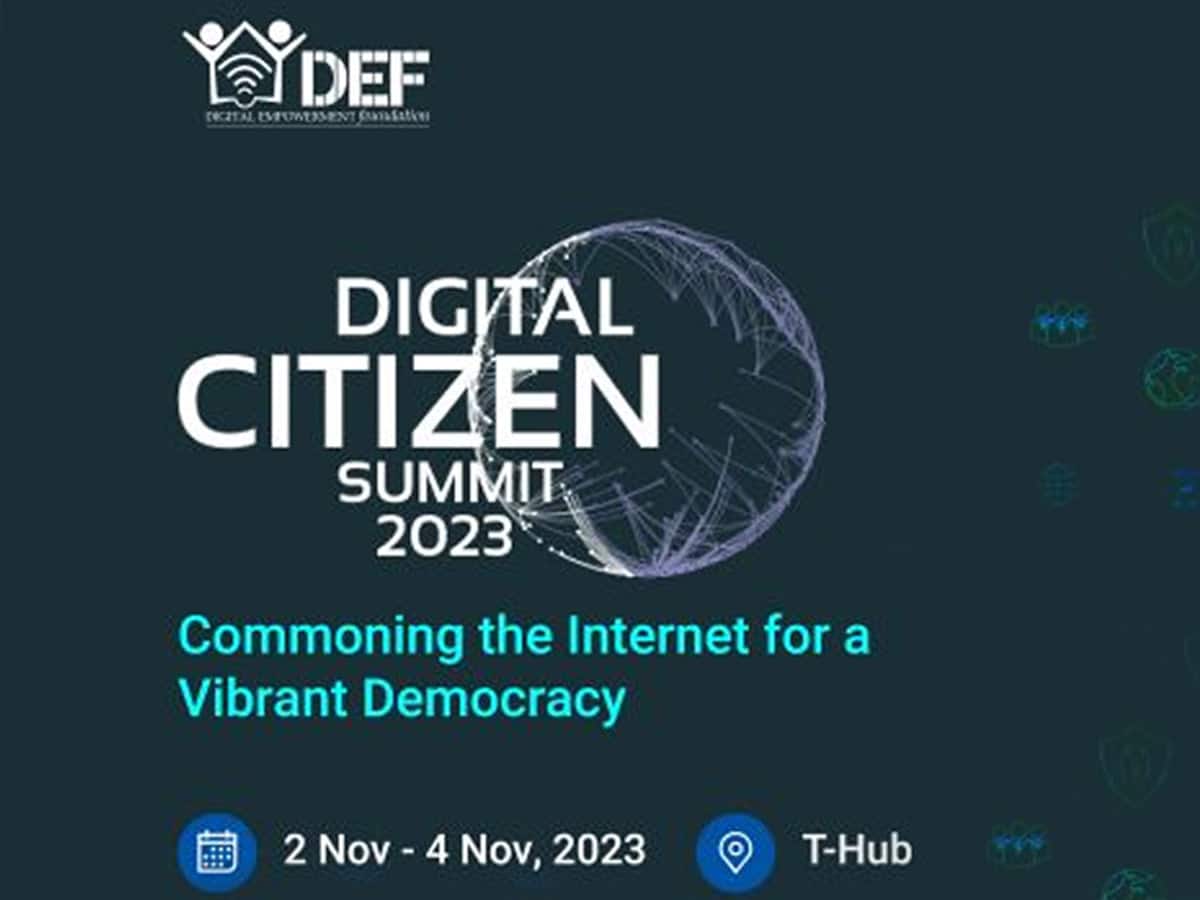
By Moumita Barman
The Digital Citizen Summit, organised jointly by the Digital Empowerment Foundation and the Centre for Development Policy and Practice, took place from November 2 to 4, 2023. During the second day of the summit, a panel convened for an insightful discussion. In this discussion titled “Commoning the Internet for a Vibrant Democracy,” the panelists included Sonia Jorge, Executive Director of the Global Digital Inclusion Partnership; Dr. Shiv Kumar, Principal Advisor at Broadband India Forum; Nikhil Dey, Founding Member of Mazdoor Kisan Shakti Sangathan; Kunal Kamra, a Stand-Up Comedian; and Kavitha Iyer, Editor at Article 14. Osama Manzar, Founder-Director of the Digital Empowerment Foundation, moderated the discussion.
In an age dominated by digital transformation, the intersection of technology and governance presents a delicate balance between convenience and concern, particularly in India’s socio-political landscape. This discussion shed light on a few of the concerns related to the same. Recent government initiatives, such as the National Mobile Monitoring System (NMMS) and the Aadhaar-based Payment System (ABPS) for Mahatma Gandhi National Rural Employment Guarantee Scheme (MGNREGS), aimed at enhancing worker attendance and streamlining payment systems, have sparked considerable debate. While seemingly innovative, these measures raise legitimate concerns about privacy infringement and effectiveness.
Nikhil Dey opined that “an estimated 1.5 crore eligible workers out of 11.60 crore under the NREGA might face job denial due to mandatory ABPS implementation. Up to 70% of workers across states are at risk of losing work, with poor network connectivity compounding the issue. These measures, instead of curbing corruption as claimed, intensify hardships for workers. Without corrective action, the scheme’s future is at stake.” Hence, despite the purported aims of efficiency and accountability, these measures risk compromising individual privacy and may prove ineffective due to potential technical glitches and vulnerabilities.
Similarly, the Information Technology (Intermediary Guidelines and Digital Media Ethics Code) Amendment Rules, 2023 (IT Rules 2023), while attempting to regulate content on social media have sparked significant controversy as well. Kunal Kamra pointed out that “these regulations, compelling social media intermediaries to remove content labelled as ‘fake, false, or misleading’ by the Central Government, seemingly run counter to the provisions outlined in Section 79 of the IT Act.” Moreover, this enactment can be seen as a potential infringement upon constitutional rights outlined in Articles 14, 19(1) (a), and 19 (1) (g), raising concerns about censorship and freedom of expression.
Another issue that Sonia Jorge and Kavitha Iyer highlighted was the digital divide from a gendered lens. This divide between genders and economic status exacerbates connectivity challenges, especially among poorer households living in informal housing. This gap severely impacts educational opportunities, which was evident during the pandemic, contributing to rising digital illiteracy and compromising digital security measures among marginalised groups. It is imperative to bridge this gap by ensuring equitable access and affordability of the Internet.
Even for those with internet access, Dr Shiv Kumar stated that there exists “inadequate safety measures against widespread scams disproportionately affecting older individuals with limited technological proficiency.” The lack of comprehensive education and support in navigating online platforms leaves them vulnerable, highlighting the urgent need for robust digital literacy programmes and enhanced security measures.
Amid these challenges, it’s crucial to navigate a path forward that balances technological advancements with individual rights and societal well-being. The government must reassess surveillance measures, ensuring they respect citizens’ privacy while also addressing inefficiencies. Regulations should align with constitutional principles, upholding freedom of expression while curbing misinformation through collaborative efforts, not excessive censorship.
Efforts must prioritise bridging the digital gender gap, empowering marginalised communities with affordable internet access and comprehensive digital literacy programmes. Education and support initiatives should target vulnerable populations, enhancing their understanding of online risks and safety measures.
Civil society organisations (CSOs) can also contribute through advocacy, capacity-building, awareness campaigns, and community empowerment efforts. Their role in monitoring policies and recommending inclusive measures is vital.
At an individual level, active participation in discussions, demanding accountability, and promoting digital literacy are key. Supporting initiatives aimed at bridging the digital divide and practising responsible online behaviour contributes significantly to fostering a more inclusive, secure, and democratic digital space. Collaborative efforts between the government, civil society, and the citizenry are vital to charting a future where technology serves as an enabler rather than a barrier, ensuring a digitally inclusive and rights-respecting society.
Moumita Barman is a Research Associate at CDPP. She has a Master’s degree in Public Policy and Governance from the Tata Institute of Social Sciences, Hyderabad. Her research interests lie in Gender, Social Conflict, Caste and Religion in India, Education, and Rural Livelihoods.



